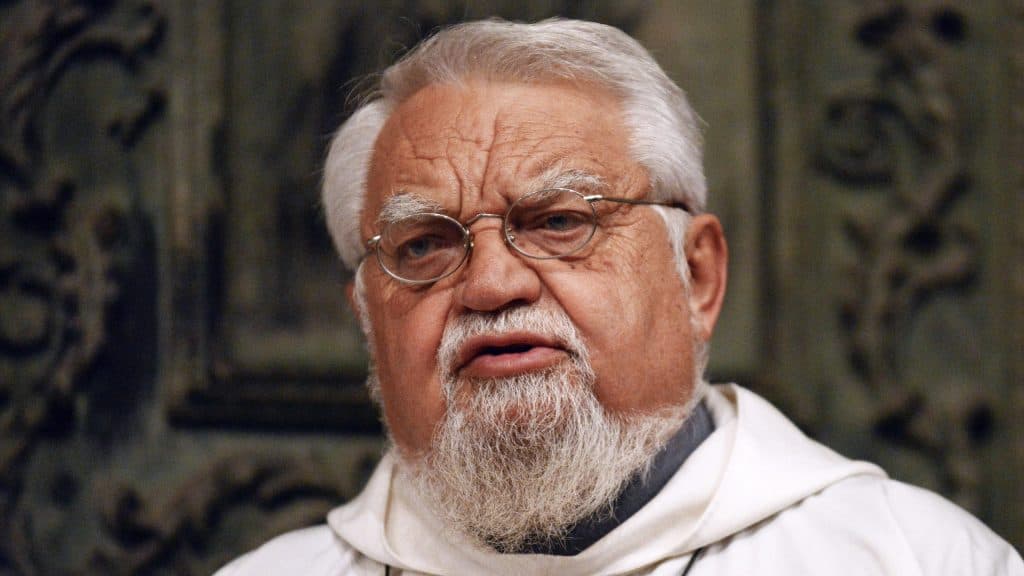ROME – Nearly a year after being ordered by the Vatican to leave the monastery he founded, a decree with which he refused to comply, Italian Father Enzo Bianchi will now relocate to one of his community’s properties, which will be permanently closed in a bid to end a months-long stalemate.
In a Feb. 8 communique, Father Amedeo Cencini, the pontifical delegate to the Monastery of Bose that Bianchi founded, said the monastery will close its location in Cellole, which opened in 2013, and the property will no longer be able to call itself anything associated with the community.
The complex, according to a new decree issued by Vatican Secretary of State Pietro Parolin Jan. 6, will be given indefinitely “on free loan” to Bianchi, who has been ordered to move there no later than Thursday, Feb. 16, “having already given his consent in this regard.”
Several members of the Bose Monastery who wish to live with Bianchi have also been given permission to move to Cellole with him extra domum, meaning “outside the home.”
The decision for Bianchi to transfer to Cellole was made nearly a year after he was ordered to move out last May following an investigation into the internal life of the community.
In 2019 the Vatican launched an investigation into the Bose Monastery after receiving complaints from the community that there were “a series of concerns from the Holy See that indicated a tense situation and problems concerning the exercise of authority by the founder, governance issues and the fraternal climate in the community.”
The monastery is a monastic community of men and women belonging to different Christian confessions, but who live a common life of prayer, poverty, celibacy, and obedience to the Gospel.
Bianchi, 77, launched the community in the 1960s and enjoyed the favor of popes John Paul II, Benedict XVI, and Francis for his ecumenical efforts.
In 2003, he was tapped by John Paul II be part of the delegation that returned the celebrated icon of Our Lady of Kazan to the patriarch of Moscow in his capacity as a member of the executive board of the Catholic Committee for the Cultural Cooperation of the Pontifical Council for Promoting Christian Unity.
Bianchi attended high-profile Vatican meetings in 2008 and in 2012, and in 2018 Pope Francis named him a consultor of the Vatican’s office for Christian Unity.
He stepped down from leadership in 2017. An investigation was launched in 2019, the result of which was Bianchi and three other members of Bose – two brothers and one sister – being asked to move out of the community and to cease their functions in it.
The announcement of the investigation and subsequent decision by the Vatican was made in May, but Bianchi refused to leave, arguing that he had spent the past ten years in the monastery and would not be able to find another suitable place to live.
According to Cencini’s statement Monday, after eight months of refusal to comply with the decree, which Bianchi had “accepted in writing,” and “after not a few attempts” to make Bianchi’s leave smoother, the decision was made to close the Cellole property and set it aside exclusively for Bianchi’s use.
Each of the provisions outlined in the initial May 2020 decree remain valid, including the order for the three other members of Bose to move out.
In his statement, Cencini said he decided to publish this latest decree in order to “avoid any confusion and ambiguity” regarding the changed status of the former Monastic Fraternity of Bose in Cellole.
In a statement published to their website Feb. 8, the Bose Monastery explained the reason for closing its complex in Cellole, saying that since June of last year “the community has waited in vain” for Bianchi to obey the Vatican’s orders.
Over the past eight months, Cencini “has made many attempts to make the execution of the aforementioned decree easier for Brother Enzo Bianchi, acting according to the patience taught by the Gospel, by virtue of the mandate received from the Holy See, in respect of justice, and, above all, of the suffering of all those involved,” they said.
They said Bianchi was specifically asked to move to Cellole before Lent begins Feb. 17, on Ash Wednesday.
The monastery said the move was “a difficult decision for us and one full of suffering, but unfortunately inevitable and not to be further postponed.”
They thanked all those who worked to open the Cellole complex in 2013 and prayed that “the Lord’s mercy extends to all of us and grants us the gift of peace that only he can give us.”
Follow Elise Ann Allen on Twitter: @eliseannallen












